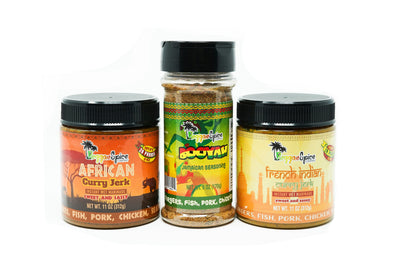Can You Grill in the Winter?
Does a juicy grilled steak sound heavenly about now? It may seem weird to think about grilling outdoors, in the cold, in 6 inches of snow, and you may wonder if it’s even possible to grill in the winter. Let’s talk about the possibility of grilling in the winter and what factors to consider.
Grilling in Winter
You can grill in winter and there are even some “extreme grillers” who do it in rain, sleet, hail, and snow; however, there are some tips and reminders to follow. A few advantages to doing it now include no flies, bees, or other pesky bugs to worry about, and there’s no need to chill your food. Here are some other benefits, and handy tips to ensure successful winter grilling.
Best Grill for Winter Grilling
Aside from the above advantages to grilling in wintertime, it’s important to pick the right grill for wintertime. The traditional charcoal-piled grill won’t do the trick in winter. You need a grill that takes the heat (or cold), which means choosing a grill with a cast-iron grate and the highest British thermal unit (BTU) that fits your budget. Also, ensure it’s sturdy and well-insulated with thick walls and heats up fast, retaining as much heat as possible throughout the cooking time.
How to Use YOUR Grill during Winter
It’s important to be knowledgeable about grilling in the wintertime; the best way is to refer to your grill manual. It has good instructions on how the model functions. Also, note that gas grills need to warm up in the winter, so turn the knobs up higher than average. If you’re charcoal or gas grilling, ensure you keep a cover on your barbecue grill when not in use, to protect it from the snow. If you take it out and the lid is frozen, move it into the garage and let the ice melt. (a hair dryer works great for this.) Don’t force a lid open, as the force can cause a part to break.

Tips for Winter Grilling
Here are 12 tips to follow for an excellent winter grilling experience.
1. Clean the Grill
If you put your grill through a lot of work last summer, it may need a good, deep cleaning. Before you clean, look to make sure no small critters have made a home in your grill for the winter. Then, go through and thoroughly clean everything, including hidden areas you don’t typically notice. When cleaning the plates, use a brush that doesn’t have bristles, such as this one, since a vigorous scrub can cause the bristles to fall off and onto your grill. It’s best to clean the grates after you grill since the heat makes it easy to wipe off grease and food remains. Once you’re finished cleaning, make sure you leave it for a bit to cool down.
2. Check Your Fuel
Cold temperatures affect fuel, such as propane, so check your fuel to ensure you have a full tank. Propane doesn’t burn as efficiently as in warmer weather and grilling takes longer to cook so that you will use more fuel with winter grilling. It’s a good idea to keep a spare propane tank around, just in case you run out.
3. Be Safe
This seems like a no-brainer any time you’re messing with fire, but no one wants to cause or be involved in a grill accident. The best way to prevent problems is by being prepared. Ensure your grill is on a firm level surface that doesn’t have snow or ice covering it. A wood deck is the wrong place. Moreover, keep your spare fuel far away from the lit grill. Your clothing is a factor, as well. Scarves or long coats can trail into the flames, so be extra cautious when grilling in winter.
4. Have Good Lighting
Because of the shorter days, you may not have the choice of grilling when it’s light out, so ensure you have good outdoor lighting for practicality and atmosphere. A good option is using string lights, but steer clear of trailing extension cords as your power source since they create a tripping hazard. A good overhead light is best for grilling, and using a powerful headlamp is a great choice for excellent visibility.
5. Invest in a Grill Thermometer and App
Who wants to be outside in freezing temps waiting for the meat to cook on a grill? Instead, buy a grilling thermometer and app that monitors the temperature of your food while you sit in a warm home. Insert the probe into your meat. Once it finishes cooking, a handy alert notifies you—no more flipping and prodding to see whether your burgers are grilled.
6. Remove the Snow Winter
Grilling can pose several hazards, mainly with ice and snow, and if it’s dark outside. First, remove all the snow or ice from your cooking areas and any extension cords and other hazards that result in tripping or falling. A few helpful tips for removing snow includes using cooking spray on your shovel, which helps you move through snow quickly and prevents it from sticking to the shovel. Also, wear socks over your shoes, which allows for more traction and less slipping and falling.

7. Cover Your Hands
A great idea for winter grilling is the use of grilling gloves. Ordinary winter gloves won’t help with grilling, so invest in gloves, specially designed for grilling. These gloves can withstand extremely high temps and feature long cuffs that protect your hands and wrists against burns. Made from fire-resistant material, usually silicone, you won’t worry about tears or holes. They also typically have a non-slip grip, so you can safely handle food and utensils. Best, they’re easy to clean, with some even dishwasher-safe.
8. Avoid Accidents
Some common-sense safety rules should include ensuring your grill is at least 10 feet away from buildings, fences, or any other flammable materials. Keep a designated place for both raw and cooked food and don’t mix them. You don’t want anyone texting you the day after and blaming you because they suffered from food poisoning. Make sure you give easy and safe access to supplies and condiments. Avoid glass, if possible, and watch out for the safety of children when serving hot drinks or soups. Also, if you have a firepit that you light in winter, keep an extra eye or two on kids. A table or two should be enough to place everything on.
9. Use Smoke (to add flavor)
A cold smoker is ideal for winter and adds a rich, smoky flavor to your meat. Smoke steak, pork, bacon, and fish. Keep in mind that smoking takes longer and requires constant heat. A thermal blanket can insulate against the cold and reduce the amount of fuel you need, so consider getting one.
10. Pick Low-Maintenance Foods
If you have a grilling recipe that calls for basting the meat every few minutes, save it for summer. Opening and shutting the grill results in lost heat, so go for something more manageable, such as burgers or a grilled chicken using a thermometer.
11. House Your Grill
Building a permanent grill shelter may seem strange, but for those who love winter grilling or even summer grilling, you can’t go wrong. You can construct a shelter with a wide range of customizable features, including storage, built-in cooler, lighting, and bench seating. So, when it’s hot as blazes or frigid outside, you can shelter in, staying comfortable.
12. Get Wet Marinades
















